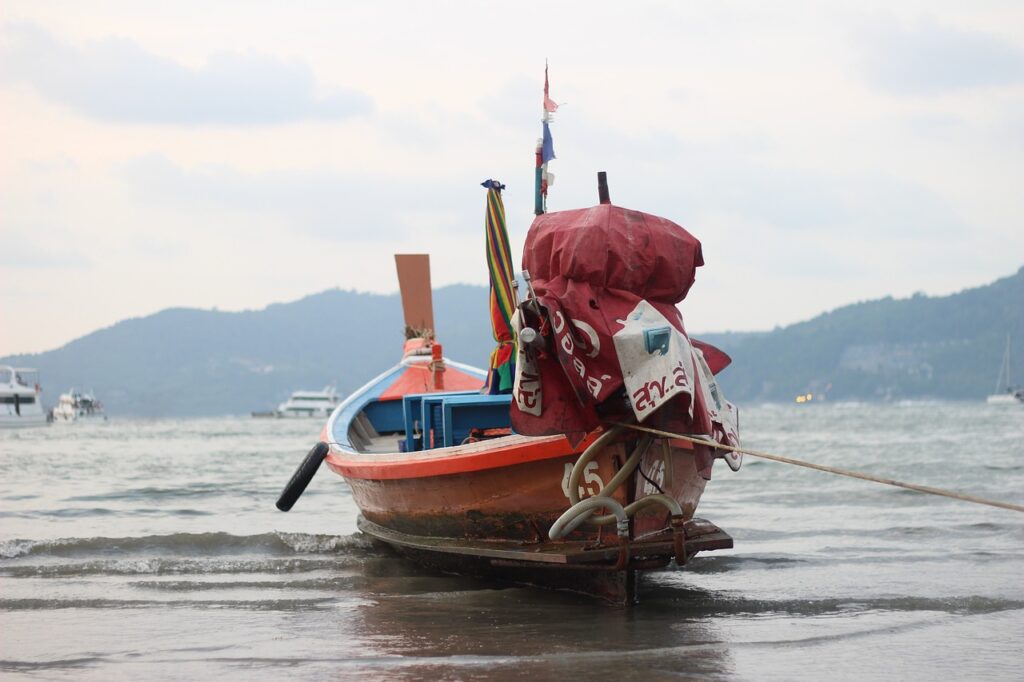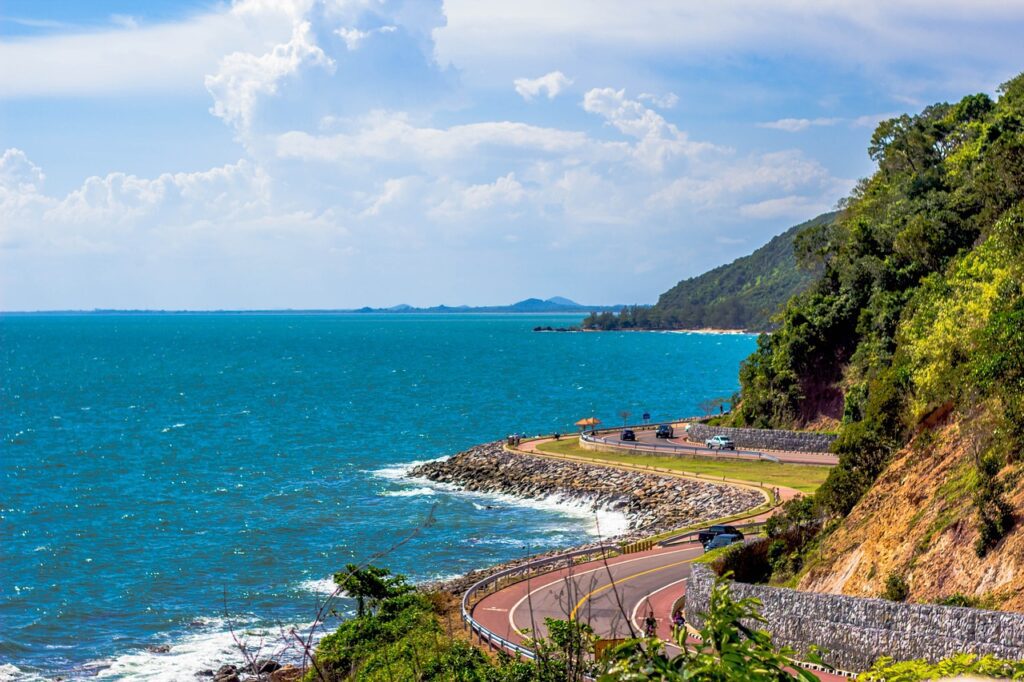Koh Samui is more than just a tropical paradise; for many expats, it’s a dream destination that offers not only stunning beaches but also a laid-back lifestyle and a strong sense of community. Whether you’re drawn to the island’s natural beauty, the welcoming expat circles, or the allure of a more relaxed pace of life, moving to Koh Samui can be an exciting adventure. However, settling in a new country comes with its own set of challenges. From securing housing and navigating the cost of living to embracing the local culture, there are several practical aspects you’ll need to understand to make your transition smooth.

This guide will walk you through the most important things to consider as you settle into life in Koh Samui as an expat. By focusing on key topics like finding the right neighborhood, budgeting for daily expenses, and building connections with the local community, you’ll be well-prepared to enjoy everything this island has to offer while avoiding common pitfalls. Whether you’re planning a permanent move or a long-term stay, these tips will ensure that your experience is hassle-free and fulfilling.
Housing and Accommodation
Securing the right accommodation is one of the first crucial steps for expats moving to Koh Samui. The island offers a variety of housing options that cater to different needs and budgets, ranging from luxury villas with breathtaking ocean views to more affordable apartments nestled inland. Many expats initially opt to rent to explore the different neighborhoods and lifestyle options available before committing to a more permanent residence. Whether you’re seeking a bustling area near the beach or a quieter retreat, Koh Samui has something for everyone.
Popular Areas for Expats
Certain areas on the island are particularly popular with the expat community due to their accessibility, modern amenities, and vibrant local culture. Chaweng and Lamai are top choices for many expats because of their close proximity to some of the island’s best beaches, a wide variety of restaurants, and access to essential services like shops and hospitals. These areas are energetic, offering a blend of local and international influences, which makes them ideal for expats who want a taste of both Thai culture and modern conveniences.
For expats seeking a more tranquil and laid-back environment, areas like Mae Nam and Bophut offer a slower pace of life while still providing access to local markets and community events. These regions are perfect for those who prefer to be slightly removed from the hustle and bustle, yet still want to enjoy easy access to expat-friendly amenities and activities.
Renting vs. Buying Property
For most expats, renting is the most practical option when they first move to Koh Samui. This allows newcomers to familiarize themselves with different areas before deciding where to settle more permanently. Rental prices vary widely depending on the type of property and its location. Luxury villas with ocean views and private pools come with a higher price tag, while more modest apartments or inland houses offer more affordable alternatives. Rental contracts are generally flexible, with both short-term and long-term options available, making it easier for expats to adjust as they explore the island.
For those considering buying property in Koh Samui, it’s important to understand Thai property laws. While foreigners are restricted from directly owning land, there are alternative options such as purchasing condominiums or securing long-term leases for land. This process can be complex, so it’s highly recommended to work with a knowledgeable real estate agent or lawyer who is experienced in local property laws to ensure a smooth transaction. Many expats find that investing in property offers long-term stability and a deeper sense of connection to their new island home.
Whether you choose to rent or buy, understanding the local property market and being aware of legal requirements will help you make informed decisions as you settle into life in Koh Samui.
Living Costs in Koh Samui
The cost of living in Koh Samui is generally affordable, particularly when compared to many Western countries. However, your overall expenses can vary greatly depending on your lifestyle choices. For expats who enjoy the conveniences of Western comforts, such as imported goods or high-end restaurants, prices can be higher. On the other hand, embracing local Thai products and services allows you to live more budget-consciously. Whether you are looking to save money or indulge occasionally, Koh Samui offers a range of options to suit different budgets.
Daily Expenses
For day-to-day living, basic groceries like rice, fresh vegetables, and local fruits from Thai markets are very affordable. Additionally, dining out at local Thai restaurants or grabbing street food is both delicious and budget-friendly. However, if you prefer Western brands or imported items, be prepared for higher prices. Supermarkets that cater to tourists or expats often stock imported goods, which can significantly increase your monthly grocery bill.
When it comes to transportation, many expats choose to rent or buy a motorbike to navigate the island. Renting a motorbike is a convenient and affordable option, with low petrol costs, making it easy to get around. Alternatively, taxis and songthaews (shared taxis) are available, but using these regularly can add up, especially in tourist-heavy areas.
Utility bills are another factor to consider, particularly electricity and water. Air conditioning, which is often essential in the tropical climate, can drive up your electricity bill if used frequently. To balance costs, many expats adopt a mix of Western and local habits, such as using fans during the day or opting for open-air living spaces, which can help lower energy consumption while still enjoying a comfortable lifestyle.

Healthcare and Insurance
When moving to Koh Samui, ensuring access to reliable healthcare is essential. Fortunately, the island has a solid range of medical facilities, with both public and private healthcare options available. While public hospitals provide affordable care, many expats opt for the higher standard of care offered by private hospitals like Bangkok Hospital Samui. These private facilities generally have English-speaking staff and modern medical equipment, offering peace of mind for those who prefer a higher quality of care. However, the cost of treatments, especially for more serious conditions or emergencies, can be high.
Health Insurance Options
To avoid the financial burden of medical bills, most expats choose to purchase private health insurance. There are several international and local insurance providers that offer comprehensive coverage, ranging from basic plans that cover general medical care to more extensive packages that include emergency services and hospital stays. It’s advisable to review your healthcare needs and select a plan that ensures you have access to quality care without the worry of unexpected out-of-pocket expenses.
While some expats choose to pay for minor treatments out of pocket, having comprehensive health insurance is particularly valuable in case of emergencies or more serious health issues. With the right insurance plan, you can enjoy the medical facilities in Koh Samui with the assurance that you will receive high-quality care without unexpected costs.
By staying informed about living costs and healthcare options, expats in Koh Samui can manage their finances effectively and ensure they have access to the care they need, allowing them to fully enjoy life on the island.
Integration and the Expat Community
One of the most rewarding aspects of living in Koh Samui as an expat is the strong and welcoming expat community. The island has long been a hub for expats from all over the world, which has resulted in a diverse and supportive network for newcomers. Whether you’re seeking social events, joining a local club, or participating in online forums, there are countless opportunities to connect with like-minded individuals. Many expats have made Koh Samui their home for years and are often eager to share their insights, offer advice, and help newcomers adjust to island life.

The expat community is diverse, ranging from retirees and families to digital nomads and long-term tourists. This variety means that regardless of your background or interests, you’re likely to find a community of people with similar experiences. This network can also help ease the transition to living on the island, offering support when it comes to navigating the practical aspects of life, such as finding housing, managing daily expenses, and integrating with the local culture.
Embracing Local Culture
While Koh Samui has a large expat population, it’s important to embrace and respect the local Thai culture and traditions. Learning a few basic Thai phrases—such as greetings, polite expressions, and how to order food—can go a long way in helping you build positive relationships with locals. It shows respect for the local culture and makes day-to-day interactions much easier.
Additionally, Koh Samui has a rich cultural heritage, with many festivals and Buddhist traditions celebrated throughout the year. Participating in these events, such as Songkran (Thai New Year) or Loy Krathong, can offer expats a deeper understanding and appreciation of Thai culture. Showing respect for local customs, such as removing your shoes before entering homes or temples, is also essential for building strong relationships with the local community. By embracing the culture and traditions of Koh Samui, expats not only integrate more easily but also enhance their overall experience of living on the island.
Practical Tips for Daily Life
Moving to Koh Samui as an expat brings exciting opportunities, but adjusting to the island’s unique way of life can also present some challenges. However, being prepared and understanding a few key practicalities will make the transition smoother.
Transportation and Getting Around
In Koh Samui, the most common and convenient way to get around is by motorbike. Renting a motorbike is affordable, with daily and monthly rental options available, and it provides flexibility to explore the island at your own pace. Motorbikes are easy to park and make navigating the island’s often narrow roads more manageable, especially when compared to larger vehicles. Petrol costs are relatively low, making motorbikes an economical transportation choice.
For those who prefer not to drive, taxis and songthaews (shared taxis) are also available. However, in tourist-heavy areas, taxi fares can be quite expensive, and negotiating prices is often necessary. Songthaews are more affordable and offer a convenient way to travel across the island, particularly for short distances.
If you’re planning to stay in Koh Samui long-term, it’s recommended to obtain a Thai driving license. While international driving permits are accepted for short stays, having a local license ensures that you are fully compliant with Thai law. The process for obtaining a Thai license is relatively straightforward, and it can save you from potential complications if you’re pulled over by the local police or involved in an accident.
With a basic understanding of transportation and a willingness to adjust to local driving conditions, expats in Koh Samui can enjoy the freedom of exploring the island on their own terms.

Conclusion
Living in Koh Samui as an expat offers an incredible blend of tropical beauty, a relaxed lifestyle, and a welcoming community. From finding the right housing and managing your daily expenses to navigating healthcare and integrating with local culture, the island provides everything you need for a comfortable and fulfilling life. By embracing the expat community, respecting Thai traditions, and staying informed about practical matters like transportation and health insurance, you can make a smooth transition to life on this stunning island.
With its mix of modern conveniences and rich cultural heritage, Koh Samui offers expats the best of both worlds—a place where you can enjoy an idyllic tropical lifestyle while still feeling connected to a supportive international community.
FAQs About Living in Koh Samui as an Expat
The cost of living in Koh Samui varies depending on your lifestyle. Local goods and services, such as fresh produce and dining at Thai restaurants, are affordable. However, imported goods and luxury items can be more expensive. Balancing local habits with Western comforts helps expats manage their expenses effectively.
Yes, healthcare in Koh Samui is reliable, especially at private hospitals such as Bangkok Hospital Samui, which offer high standards of care with English-speaking staff. Many expats opt for private health insurance to cover medical expenses and ensure access to quality treatment.
Expats cannot directly own land in Thailand, but they can purchase condominiums or secure long-term leases for properties. It is important to consult with a local lawyer to navigate Thai property laws and ensure all transactions are legally compliant.
Popular areas for expats include Chaweng, Lamai, Mae Nam, and Bophut. These regions offer a range of lifestyles, from bustling beach areas with plenty of restaurants and nightlife, to more quiet, laid-back communities that are perfect for those seeking a slower pace of life.
To lower your living costs, shop at local markets for fresh groceries, limit the use of air conditioning to reduce energy bills, and consider renting a motorbike for affordable transportation. Embracing a more local lifestyle can significantly help reduce expenses.
The most convenient way to get around Koh Samui is by renting or owning a motorbike, as it is both affordable and easy to park. Taxis and songthaews (shared taxis) are also available but can be more expensive, especially in tourist areas.
Yes, having private health insurance is strongly recommended to cover any unexpected medical expenses at private hospitals or clinics. Health insurance ensures you have access to quality care without worrying about high out-of-pocket costs.
To integrate into the local community, learn some basic Thai phrases, participate in local festivals and events, and show respect for Thai customs. Being open to the local culture and traditions will help you build strong relationships with both locals and fellow expats.
Yes, Koh Samui has a large and welcoming expat community. You can meet other expats through social events, expat clubs, and online forums. Many expats in Koh Samui are happy to share their experiences and offer support to newcomers.
Renting is a flexible and popular option for expats. Koh Samui offers a range of rental options, from luxury villas to affordable apartments. It’s advisable to explore different areas and rental terms before committing to a long-term lease.
